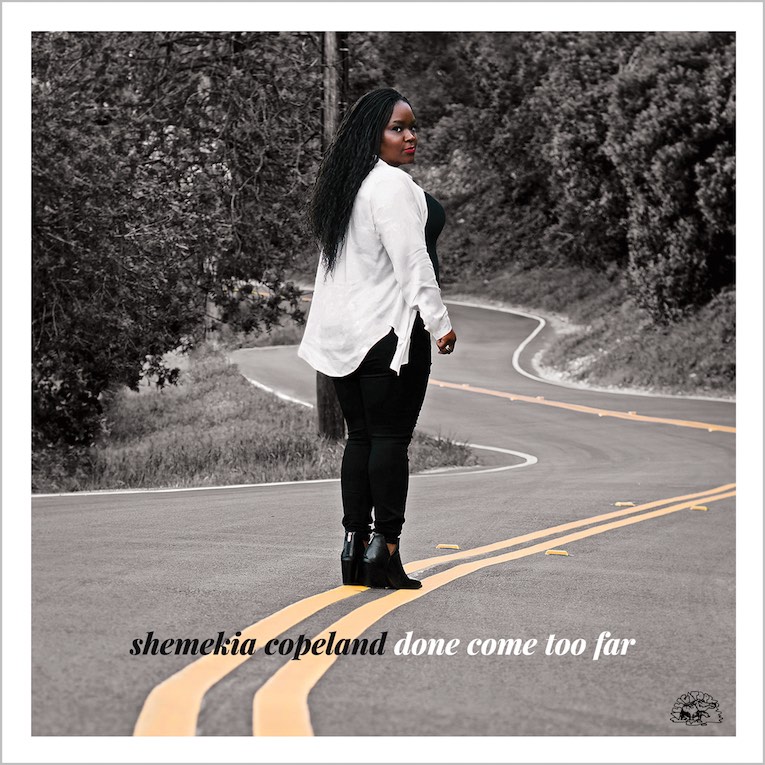
Shemekia Copeland
By Nick Cristiano
“You can kill a man but not a dream,” Shemekia Copeland declares on “Too Far to Be Gone,” the blistering blues-rocker animated by Sonny Landreth’s liquid slide guitar that leads off her new album.
That righteously defiant and indomitable spirit burns throughout Done Come Too Far. It’s no surprise. Copeland, the daughter of late Texas blues great Johnny Copeland, has been a supremely commanding presence since she debuted as a teen in the late ‘90s. She has worked with such luminaries as Steve Cropper and Dr, John, but she has done her best work over the last four years with Nashville guitarist-producer-songwriter (and solo artist) Will Kimbrough.
Done Come Too Far builds on their work together on 2018’s America’s Child and 2020’s Uncivil War, when her focus turned more outward, and it’s her most towering achievement. Using words written mostly by Kimbrough and John Hahn, Copeland delivers razor-sharp dispatches on the state of the union from the perspective of a Black woman and mother, and she does so while conveying the kind of irreproachable moral authority associated with a matriarch like Mavis Staples.
“Pink Turns to Red” is a riffing rocker about the violence visited on our children thanks to an out-of-control gun culture, while “The Dolls Are Sleeping” is a raw, harrowing acoustic number that focuses on another scourge afflicting those innocent young — sexual abuse of the innocent. In “The Talk,” a slowly building blues-rocker, Copeland addresses a son about the need to be careful when he’s out: “There’s hate in this world.”
The banjo-inflected “Gullah Geechee” has an ancient air and a yearning drive (“still trying to be free”). “Done Come Too Far” is a slow, brooding complement to “Too Far to Be Gone,” but with the same underlying defiance and an added guest vocal by Cedric Burnside. By contrast, “Dumb It Down” is highly funky and horn-accented as it takes a cynical view of what’s needed for success, although it’s a formula Copeland doesn’t follow herself: “You want to move on up, you got to dumb it down.”
Social commentary, however potent, is not all that defines the album, and the variety of lyrical themes, as well as the diversity of the music, contributes to the album’s power and emotional richness. Susan Werner’s “Why Why Why” is given a sublime country-soul arrangement with organ, piano, and slide guitar, and shows Copeland at her most open-hearted and vulnerable. “Fried Catfish and Bibles,” on the other hand, offers an infectious burst of accordion-fueled zydeco, and Ray Wylie Hubbard’s “Barefoot in Heaven” injects a dose of gospel. And Copeland tears with relish into the fiddle-laced “Fell in Love With a Honky,” a country lark that nevertheless packs a pointed message: “Love is much bigger than plain old black and white.”
As usual, Copeland includes a number by her father, and she closes the set with his propulsive “Nobody But You.” It serves as a reminder of Copeland’s connection to the traditions of the blues, but it also points up just how much she has transcended them, and in the process is keeping the blues blazingly vital and relevant.
Pre-order Done Come Too Far Here
“Too Far To be gone”

Leave A Comment